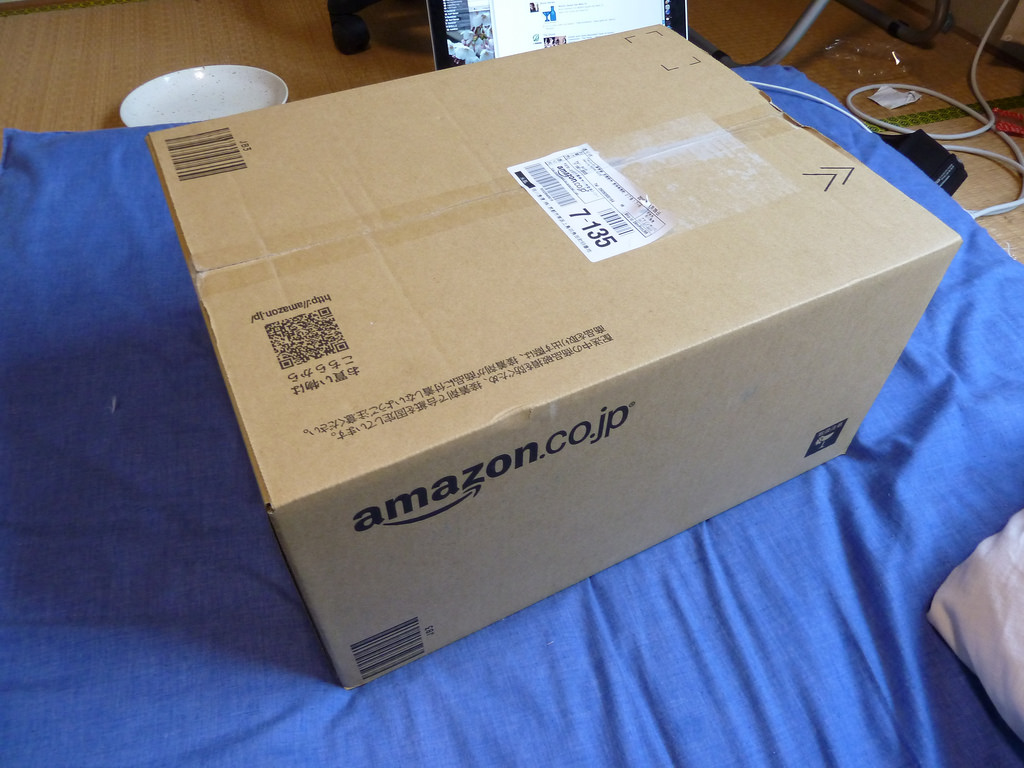There’s no doubt that Amazon has had a huge impact on revolutionizing the retail market all around the world, but its future plans have the potentially to completely change the game. For one thing, it plans to partner with Hyperloop One in order to increase the speed of its deliveries regardless of the distance. It also recently applied for a patent involving "Aquatic Storage Facilities."
The Hyperloop One/Amazon partnership news came via a Tweet sent out by Port Technology about the Container Terminal Automation Conference. In the Tweet, an image of Hyperloop One executive Nick Earle, accompanied by a presentation that clearly depicted Amazon’s Same Day delivery service was featured.
'Not just speed - it's demand that's important factor - freight pods could leave portals every 20 mins' @HyperloopOne @nearle #Hyperloop pic.twitter.com/oZjnpzQWqG
— Port Technology Int (@PortTechnology) April 20, 2017
Although there haven’t been any official confirmation or even a hint of a collaboration coming out of the two companies, it is easy enough to infer what the image is all about. The presentation also showcases certain points of interest that include airports and regional centers, which are presumably drop-off points for the products.
This collaboration actually makes a lot of sense and might not even be exclusive to Amazon in the near future. Hyperloop pods travel at about 621mph, Futurism reports, so it’s more than possible to have goods delivered to distant regions in a space of a day.
What may just trump the possibility of having products delivered via high-speed magnetic cars in a long tube is the prospect of having goods stocked under the ocean. Based on the patent that Amazon just received for underwater storage facilities, this might be coming soon, Investopedia reports.
The basic premise of this concept is that Amazon will make use of bodies of water as a means of temporarily storing packaged goods, using underwater streams to move the packages around, and using onboard computer chips to make it sink or float. It’s a crazy idea that the retail giant believes would solve a lot of the problems faced by land-based warehouses.



 Tencent Shares Slide After WeChat Restricts YuanBao AI Promotional Links
Tencent Shares Slide After WeChat Restricts YuanBao AI Promotional Links  Nvidia Confirms Major OpenAI Investment Amid AI Funding Race
Nvidia Confirms Major OpenAI Investment Amid AI Funding Race  TSMC Eyes 3nm Chip Production in Japan with $17 Billion Kumamoto Investment
TSMC Eyes 3nm Chip Production in Japan with $17 Billion Kumamoto Investment  Oracle Plans $45–$50 Billion Funding Push in 2026 to Expand Cloud and AI Infrastructure
Oracle Plans $45–$50 Billion Funding Push in 2026 to Expand Cloud and AI Infrastructure  Global PC Makers Eye Chinese Memory Chip Suppliers Amid Ongoing Supply Crunch
Global PC Makers Eye Chinese Memory Chip Suppliers Amid Ongoing Supply Crunch  OpenAI Expands Enterprise AI Strategy With Major Hiring Push Ahead of New Business Offering
OpenAI Expands Enterprise AI Strategy With Major Hiring Push Ahead of New Business Offering  Jensen Huang Urges Taiwan Suppliers to Boost AI Chip Production Amid Surging Demand
Jensen Huang Urges Taiwan Suppliers to Boost AI Chip Production Amid Surging Demand  Alphabet’s Massive AI Spending Surge Signals Confidence in Google’s Growth Engine
Alphabet’s Massive AI Spending Surge Signals Confidence in Google’s Growth Engine  Nvidia Nears $20 Billion OpenAI Investment as AI Funding Race Intensifies
Nvidia Nears $20 Billion OpenAI Investment as AI Funding Race Intensifies  Nintendo Shares Slide After Earnings Miss Raises Switch 2 Margin Concerns
Nintendo Shares Slide After Earnings Miss Raises Switch 2 Margin Concerns  Elon Musk’s SpaceX Acquires xAI in Historic Deal Uniting Space and Artificial Intelligence
Elon Musk’s SpaceX Acquires xAI in Historic Deal Uniting Space and Artificial Intelligence  AMD Shares Slide Despite Earnings Beat as Cautious Revenue Outlook Weighs on Stock
AMD Shares Slide Despite Earnings Beat as Cautious Revenue Outlook Weighs on Stock  SpaceX Updates Starlink Privacy Policy to Allow AI Training as xAI Merger Talks and IPO Loom
SpaceX Updates Starlink Privacy Policy to Allow AI Training as xAI Merger Talks and IPO Loom  Nvidia, ByteDance, and the U.S.-China AI Chip Standoff Over H200 Exports
Nvidia, ByteDance, and the U.S.-China AI Chip Standoff Over H200 Exports  Nvidia CEO Jensen Huang Says AI Investment Boom Is Just Beginning as NVDA Shares Surge
Nvidia CEO Jensen Huang Says AI Investment Boom Is Just Beginning as NVDA Shares Surge  SpaceX Prioritizes Moon Mission Before Mars as Starship Development Accelerates
SpaceX Prioritizes Moon Mission Before Mars as Starship Development Accelerates  Sony Q3 Profit Jumps on Gaming and Image Sensors, Full-Year Outlook Raised
Sony Q3 Profit Jumps on Gaming and Image Sensors, Full-Year Outlook Raised 































